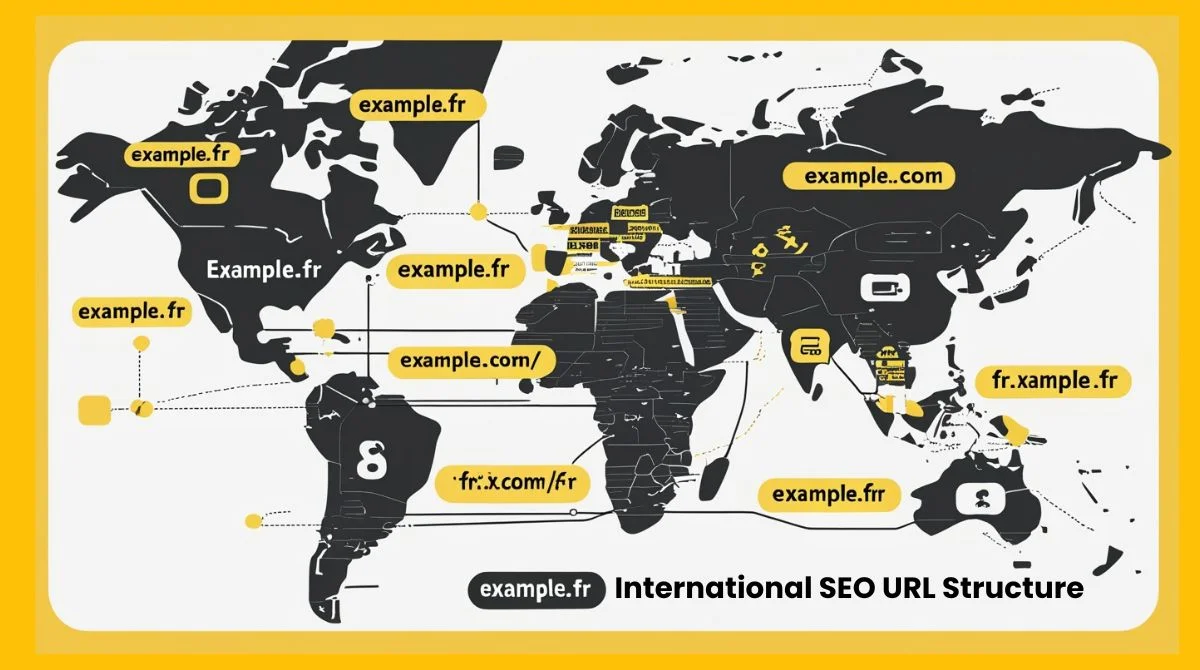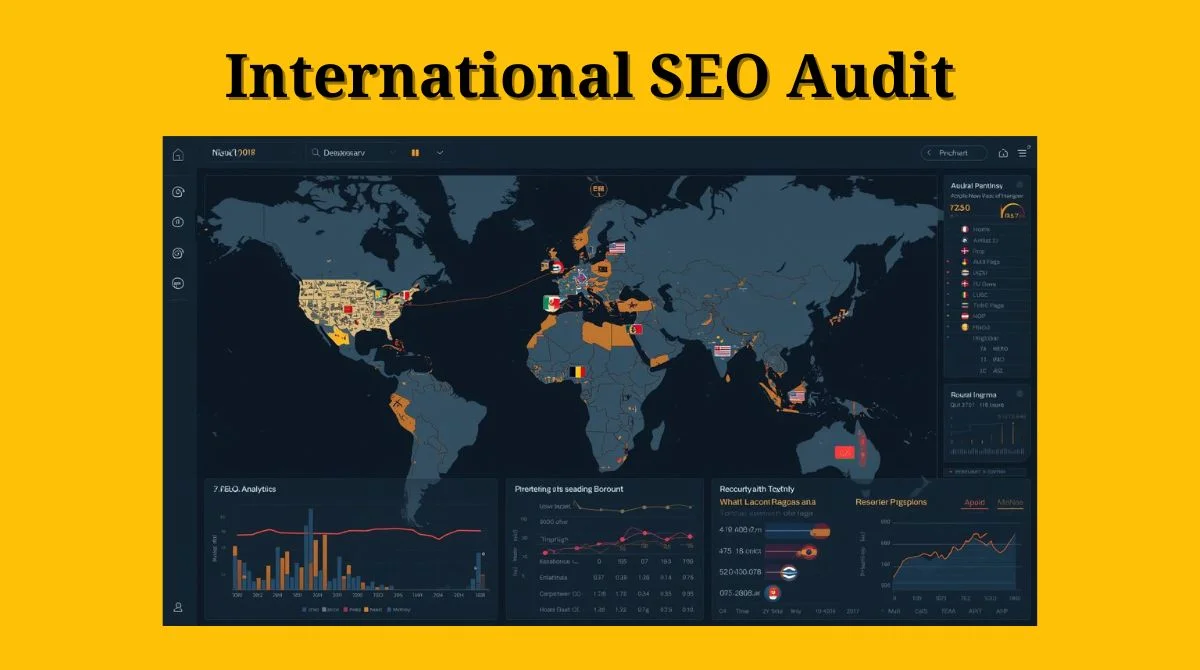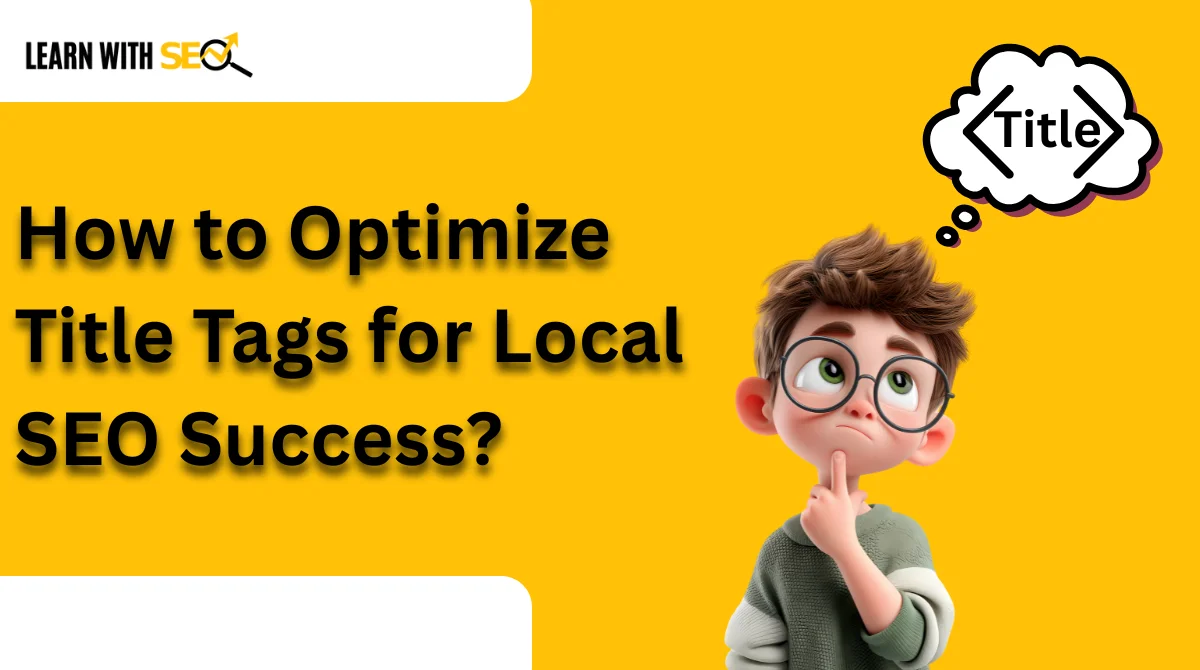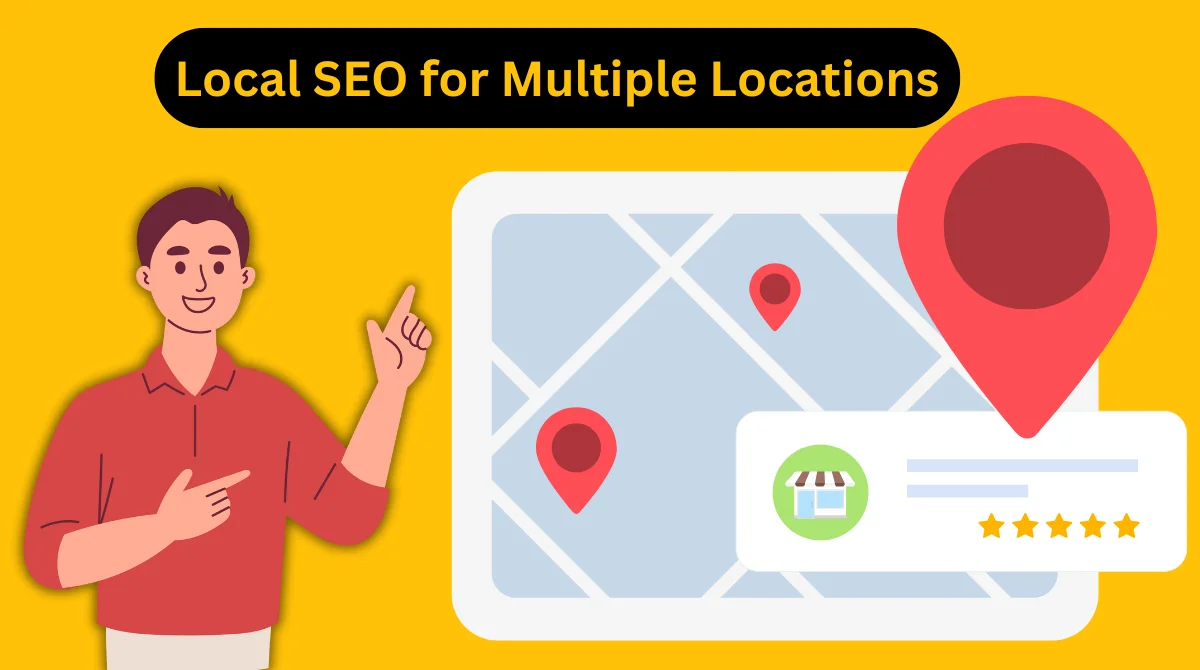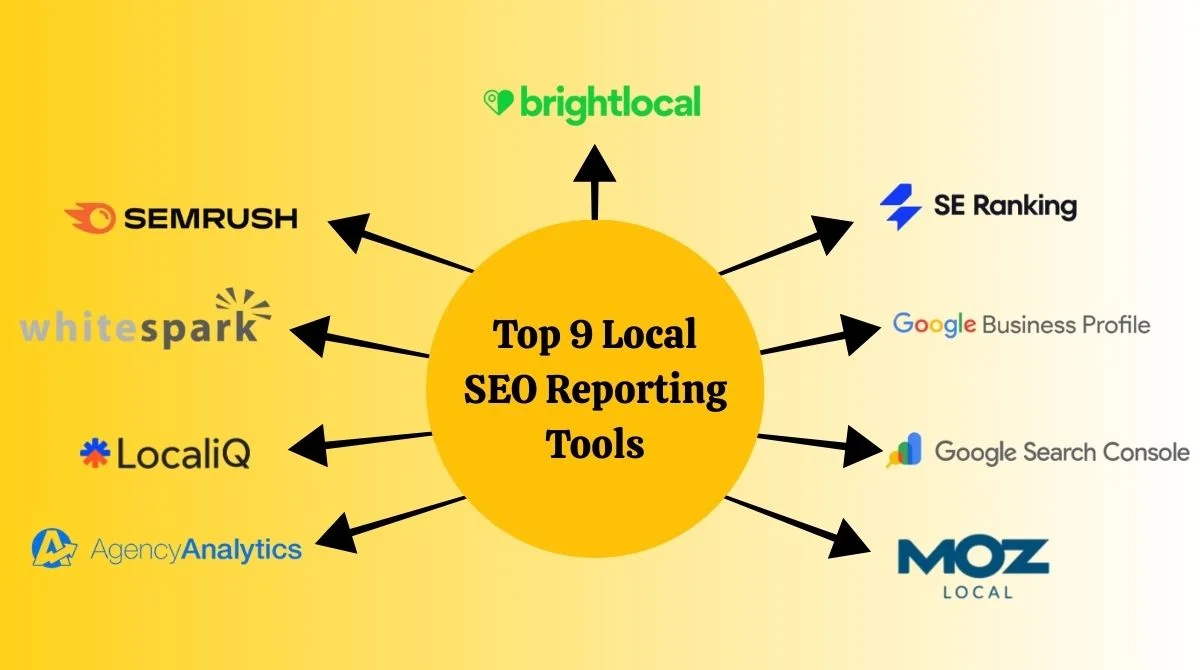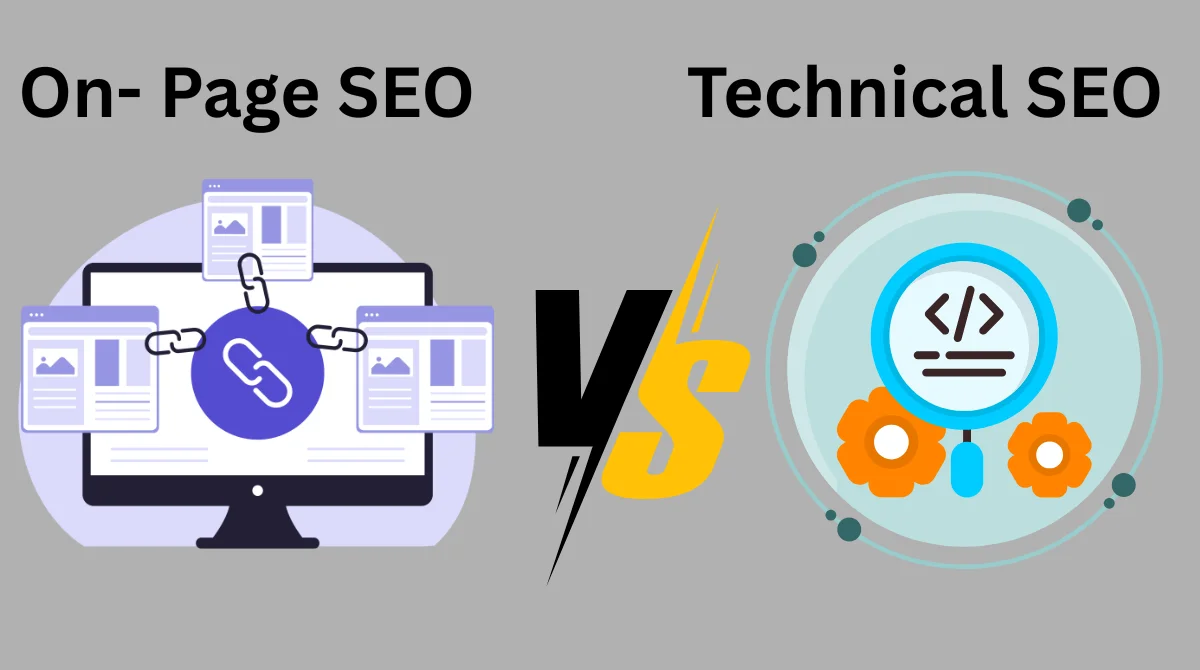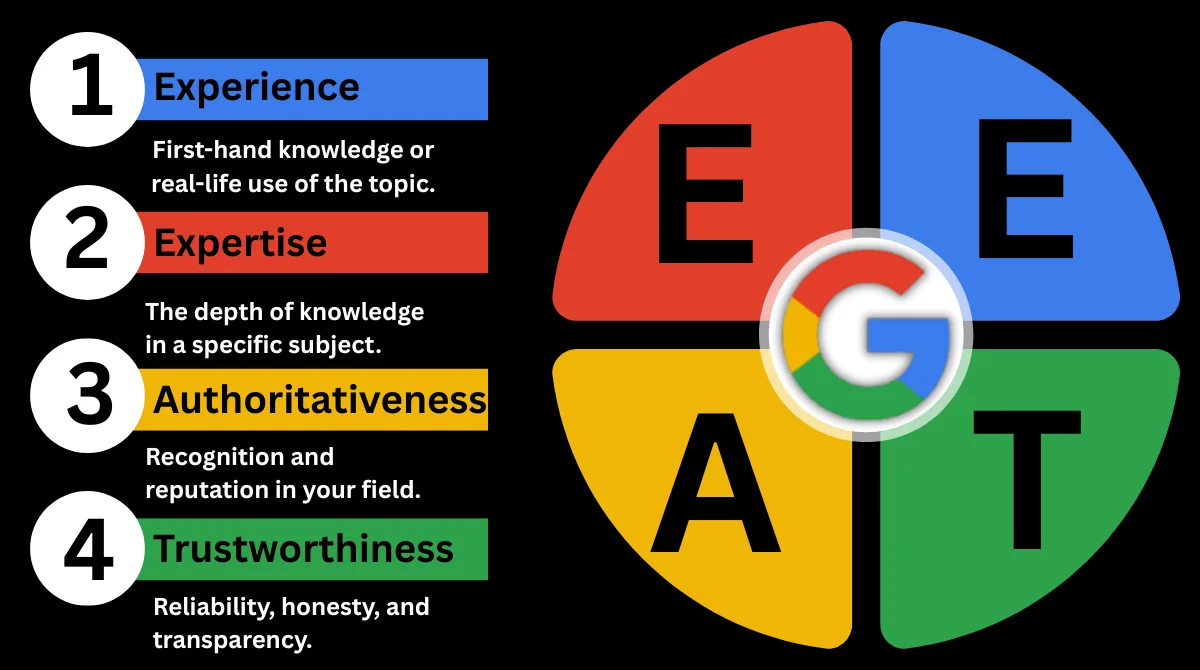- Understanding Multi-Location SEO Challenges
- Create Dedicated Location Pages
- Master Google Business Profile Optimization
- Implement Local Keyword Strategy
- Build Local Citation Networks
- Content Marketing for Multiple Locations
- Technical SEO Considerations
- Monitor and Track Performance
- The Latest Google Algorithm Updates Impact
- Common Mistakes to Avoid
- Advanced Strategies for Large Multi-Location Businesses
- Measuring ROI and Success
- Conclusion
Managing SEO for multiple business locations can feel overwhelming. Each location faces unique competition and customer behavior patterns. However, with the right strategy, you can dominate local search results across all your locations.
Multi-location SEO becomes more complex as every location has its own search trends, competition, and customer habits, making a generic local SEO approach ineffective. This guide will show you exactly how to create a winning SEO strategy for multiple locations.
Understanding Multi-Location SEO Challenges
Multi-location businesses face several unique challenges. Managing consistent information across dozens or hundreds of locations requires careful planning. Each location needs its own local SEO approach while maintaining brand consistency.
The biggest challenge is avoiding duplicate content issues. Search engines penalize websites that have identical content across multiple location pages. You need unique, valuable content for each location while keeping your brand message consistent.
Create Dedicated Location Pages
Build Unique Pages for Each Location
Every location needs its own dedicated webpage. These pages should contain unique content specific to that area. Include local landmarks, neighborhood information, and location-specific services.
Your location pages should include:
- Complete NAP (Name, Address, Phone) information.
- Unique business descriptions with local keywords.
- Local testimonials and reviews.
- Area-specific service information.
- High-quality photos of the actual location.
Optimize Location Page URLs
Structure your URLs logically for better SEO performance. Use formats like yoursite.com/locations/city-name or yoursite.com/city-state. This structure helps search engines understand your geographic targeting.
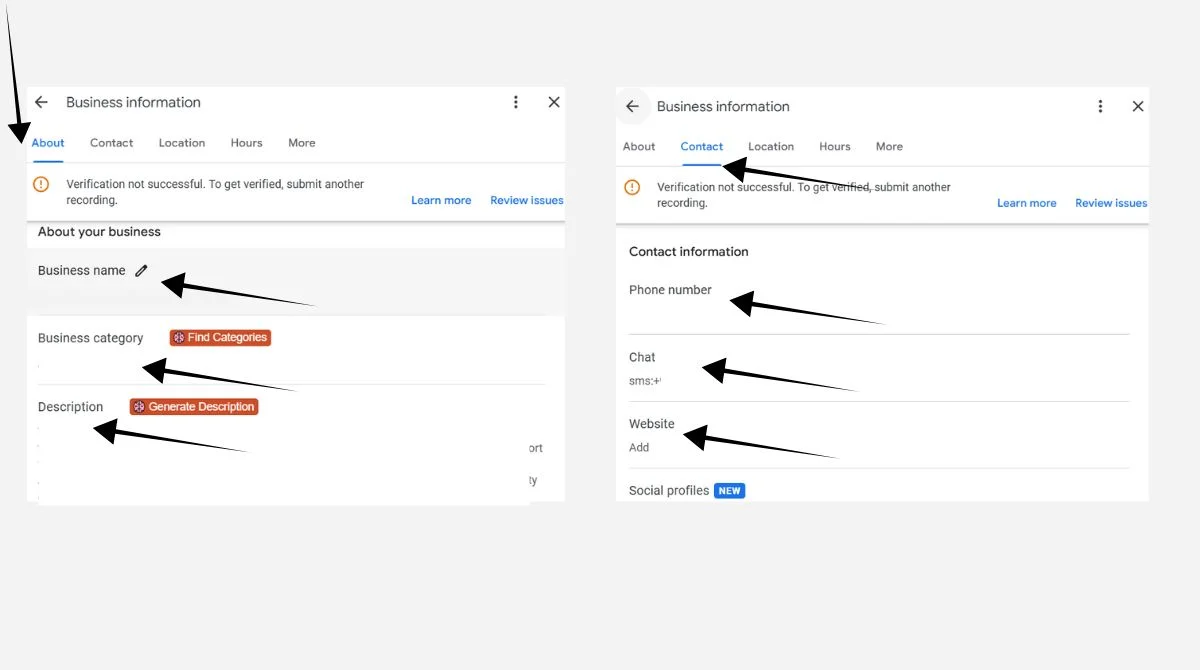

Master Google Business Profile Optimization
Set Up Individual Profiles
If you have multiple locations, link each profile to its dedicated location page, not your homepage. Each location needs its own Google Business Profile with complete, accurate information.
Maintain NAP Consistency
Your name, address, and phone number should match exactly across your GBP, website, and third-party listings. Inconsistent NAP information confuses search engines and hurts your local rankings.
Choose Accurate Categories
Select the most relevant primary category for each location. Add secondary categories that accurately describe your services. Choose the right categories to help Google understand your business better.
Implement Local Keyword Strategy
Research Location-Specific Keywords
Each location needs targeted local keywords. Research what people search for in each area. Use tools like Google Keyword Planner to find location-specific search terms.
Focus on keywords like:
- “Service name + city name”
- “Best service provider + neighborhood”
- “Service near me” variations.
- Local competitor names.
Create Location-Based Content
Develop content that speaks to local audiences. Write about local events, community involvement, and area-specific challenges your business solves. This approach helps you connect with local customers.
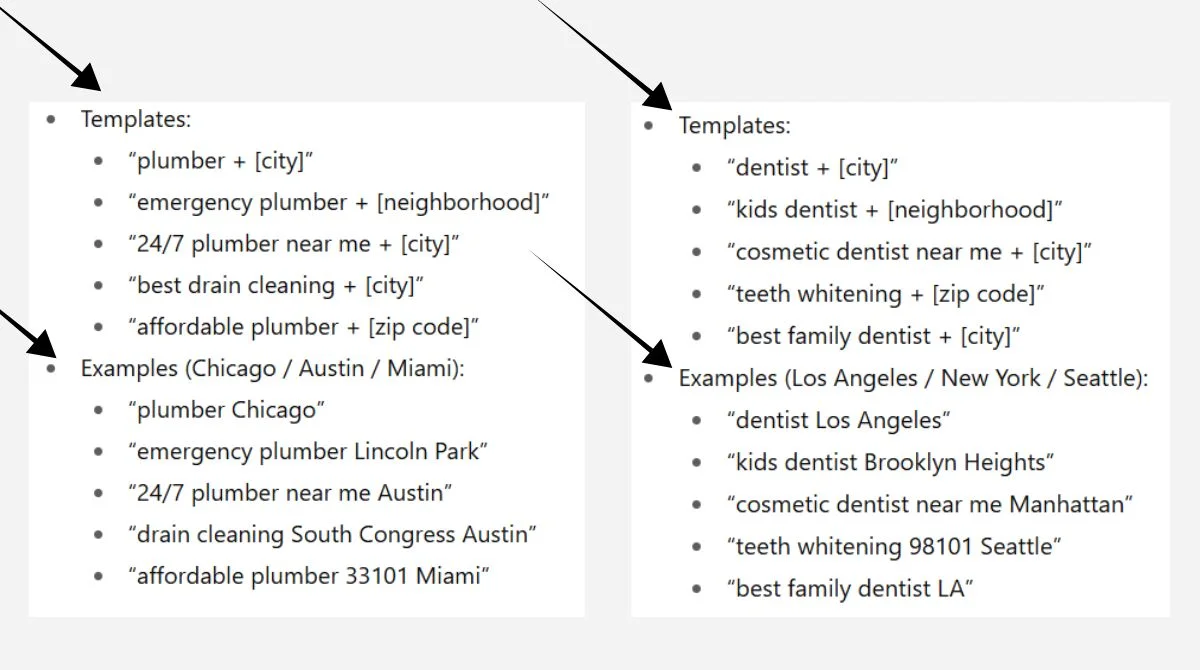
Build Local Citation Networks
Submit to Local Directories
List each location in the relevant local directories. Focus on industry-specific directories and local chamber of commerce websites. Ensure consistent NAP information across all listings.
Leverage Location-Specific Platforms
Use platforms like Yelp, Yellow Pages, and industry-specific directories. Each location should have its own listings with unique descriptions and photos.
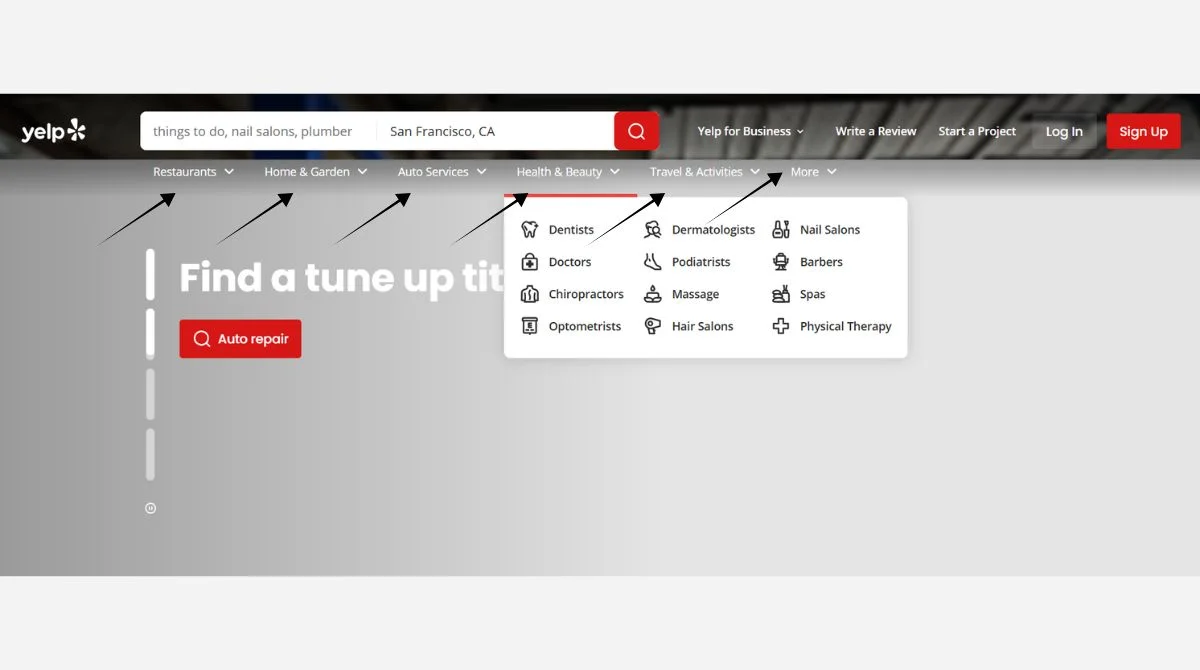
Content Marketing for Multiple Locations
Develop Location-Specific Blog Content
Create blog posts that target each location’s audience. Write about local events, news, and community topics. This content helps establish your business as a local authority.
User-Generated Content Strategy
Encourage customers to leave reviews and share photos from each location. User-generated content builds trust and provides fresh, location-specific content for your website.
Technical SEO Considerations
Implement Schema Markup
Add schema markup for products, services, and locations to help search engines better understand and display your content in local search results. Use the LocalBusiness schema for each location page.
Optimize Site Structure
Create a logical site structure that makes it easy for search engines to understand your locations. Use internal linking to connect related location pages and services.
Mobile Optimization
Ensure all location pages load quickly on mobile devices. Most local searches happen on mobile phones. Poor mobile experience hurts your local rankings.
Monitor and Track Performance
Use Location-Specific Tracking
Technology like Rio SEO’s Local Reporting comes into play. With Rio SEO, you can gain a deeper understanding of search performance across multiple locations. Track each location’s performance separately.
Monitor Key Metrics
Track important metrics for each location:
- Local search rankings.
- Google Business Profile views.
- Website traffic from local searches.
- Phone calls and direction requests.
- Customer reviews and ratings.The
The Latest Google Algorithm Updates Impact
2025 Algorithm Changes
Core updates happen multiple times per year. Core updates can have significant, broad changes to Google’s search algorithms and systems. The recent updates emphasize authentic local content and user satisfaction.
Google indicated this was a broad core update designed to surface more satisfying content for searchers. Focus on creating genuinely helpful content for local audiences.
Common Mistakes to Avoid
- Duplicate Content Issues: Never copy and paste content between location pages. Each page needs unique, valuable content. Use templates, but customize the information for each location.
- Neglecting Review Management: Poor review management hurts all your locations. Respond to reviews promptly and professionally. Encourage satisfied customers to leave positive reviews.
- Inconsistent Branding: Maintain consistent branding across all locations while allowing for local customization. Your brand voice should remain consistent even as you adapt to local audiences.
Advanced Strategies for Large Multi-Location Businesses
Franchise SEO Considerations
If you operate franchises, create guidelines for local operators. Provide templates and training to maintain SEO consistency across all locations.
Automated Monitoring Solutions
Use tools to monitor NAP consistency across the web. Set up alerts for new citations or changes to existing listings. This helps maintain accuracy across hundreds of locations.
Local Link Building
Build relationships with local businesses and organizations, secure links from local chambers of commerce, community websites, and local news outlets.
Measuring ROI and Success
Location Performance Metrics
Track revenue and leads from each location’s digital presence. Compare performance across locations to identify best practices and areas for improvement.
Competitive Analysis
Monitor competitor performance in each market. Identify opportunities where competitors are weak and you can gain market share.
Conclusion
The best SEO strategy is one that genuinely serves your audience’s needs. Success with multi-location SEO requires organization, consistent execution, and ongoing optimization. Focus on creating authentic local experiences for each location. Maintain accurate business information across all platforms. Develop location-specific content that genuinely helps local customers. Remember that multi-location SEO is an ongoing process. The pillars of multi-location SEO success are proper organization, empowering teams, staying watchful, and solving issues quickly. Stay consistent with your efforts and adapt to local market changes. Start implementing these strategies today to dominate local search results across all your business locations. The investment in proper multi-location SEO will drive more customers and revenue to each of your locations.



